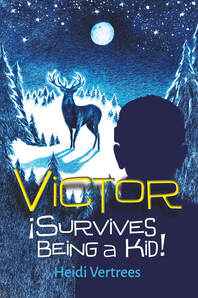|
Gardening can be a great way to involve children and teens with research skills, reading, and writing. The joy of their labor as they see the plants grow and become beautiful can also help them appreciate God’s marvelous creation. I encourage you to have a vegetable garden. Children can have pride and joy with planting and caring for their plants. Gardening teaches them how to be responsible for living things and how to bless their family. Children also can be so excited to help harvest and carry produce into the kitchen for the family to share together. When there is extra produce, children can learn to give their bounty to neighbors and perhaps those in need. Some children learn best by what we call kinesthetic experience. Personally, I think we all learn best by doing. If you are homeschooling, isn’t it lovely to expand your homeschool into your backyard if possible and enrich your children with hands-on learning in the garden? Children also can delight in “discovery learning,” when they acquire knowledge that you want them to have, but by finding it on their own. Perhaps you have used methods of discovery learning with your teaching. Sometimes children are more likely to “own” the knowledge if they have had the thrill…shall we say of unearthing it first. Gardening can be a great way to do this. Easy Peasy or maybe Easy Beansy 😊 If you live in an apartment or condo, you may have space on a balcony for growing potted plants, or you might like to grow vegetables and flowers in a community garden. When my children were very young, we had a community garden plot where we only grew bush beans. They were so easy and on a hot summer day it was great fun to go there while the children sprayed the plants and definitely themselves with the hose. Gardening is work, but by all means, I pray you savor ways to make it FUN as well. If you are new to vegetable gardening, here are some helpful tips-- Keep it simple in the beginning... ◦ Raised beds are nice, but you don’t have to start with them. Keep it simple. Create a patch of land or even a "grow bag" that you know has full sun and good access to water. A watering can can do the trick. ◦ Perhaps choose half a dozen or so favorite vegetables to grow that do well in your area. Avoid having too many of each. Remember, you are aiming for success. This approach can protect you from getting overwhelmed. ◦ Most of our garden is planted from seeds which we obtain from catalogs and online such as https://www.superseeds.com. However, you might prefer to buy seeds or starter plants at your local nursery or nearby general stores. After planting seeds, keep the soil moist to aid in sprouting and growth. ◦ With starter plants, you can cut slits in large leaf bags for where you will place your plants. Then spread this liner on the patch so it can block weeds from growing up around your plants. If starter plants are planted on a sunny day, cover them with newspaper to avoid wilting. Repeat the next day if needed. ◦ When the seeds sprout, teach your children to gently water them from the watering can so the stems do not break. Frequent watering is important at this stage of early growth since the roots are still short and can dry out quickly. Kids’ Gardening Journals ◦ Your children can enjoy keeping gardening journals that have pages for drawings as well. If you do this digitally, they may also like to add photos of the different stages of the plants’ growth. ◦ Their journals can include their observations as well as their feelings about their experience. Plus, by dating each entry, they can later remind themselves of growth stages to help with planning a garden for future seasons too. ◦ In their journals, they should sketch maps of where plants will grow. This can take them on a research journey to learn which plants may grow better next to each other and of course, to learn how big they become so they understand the need for spacing the plants. They can research which plants grow well in your area, as well as the best time to plant the ones you are choosing. ◦ They can also investigate how best to take care of the plants as they grow. Do they need stakes? (Think, stick with twine.) Do they attract pests like potato beetles? (Those can be removed by hand and also treated with natural, safe sprays.) ◦ Strawberry and rhubarb plants come back each year, and garlic cloves are planted from a good garlic bulb in the fall. That’s the kind of information children can have fun discovering on their own as they do their research. ◦ Their journals also can include their favorite recipes in which they use their garden produce. Learning how to organize and write recipes is a good writing skill too. ◦ Some children will want to create stories and poems or essays from what they observe in the garden. Kids' Lit Your literature at this time can include garden and farm themes--
Turn to God, the Divine Gardener ◦ As a family, you may want to make it a practice to teach your children to pray for their garden--to grow under God’s protection, and also to thank God when they notice the beautiful growth and harvest of their plants. When gardening we are often on our knees--a great way to pray. ◦ You can teach your children about the fruit of the spirit and how we want to plant love, joy, peace, patience, kindness, goodness, faithfulness, gentleness, and self-control in the garden of our lives, and pray that these virtues will grow. Galatians 5:22-23 “But the fruit of the spirit is love, joy, peace, patience, kindness, goodness, faithfulness, gentleness, self-control…” ◦ The Bible has many beautiful gardening references. Once again, your children might like to research these and memorize parts. For as the earth bringeth forth her bud, and as the garden causeth the things that are sown in it to spring forth; so the Lord GOD will cause righteousness and praise to spring forth before all the nations. (Isaiah 61:11) The Restoration of THE GARDEN Means So Much... In Genesis 2: 8-9 and Genesis 3:8 we read of the beautiful first garden God created. Then there was the fall and people could not re-enter that garden. Death came too. So, I am so excited to read in John 19:41 Jesus rose from the dead IN A GARDEN. God does everything perfectly! Of course, a garden, because Jesus turned everything around and made it right. Now, as His followers we have access to God’s heavenly Garden, Paradise. Jesus is the resurrection and the life. At the place where Jesus was crucified, there was a garden, and in the garden a new tomb, in which no one had ever been laid. (John 19:41) NIV Psalm 92:12-14 and Proverbs 28:19a have agricultural themes. I am passionate about Jesus’ words in John 15:5 and hope many children memorize it-- “I am the Vine; you are the branches. Whoever abides in Me and I in him, he it is that bears much fruit, for apart from Me you can do nothing.” (ESV) May you and your dear gardeners enjoy a bountiful harvest in your gardens and in your lives. Galatians 6:9 “Let us not become weary in doing good, for at the proper time we will reap a harvest if we do not give up.” (NIV) Happy gardening! Heidi Vertrees Author of Victor Survives Being a Kid newSongpress.net Like to see more blog posts like this? Click on the image below or HERE and scroll down the homepage to receive periodic newsletters. Copyright 2024, newSong Press. Copies are permitted for teaching purposes.
2 Comments
As Christian parents, teachers, or grandparents, we know the importance of a Christian worldview, and part of this is helping children and teens understand how to write as Christians. As children grow in their skills of writing, we hope for them to love Jesus. Blog posts on newSongpress.net give tips and advice to further young authors and writers in their writing, so that they can also grow in their abilities to write as Christians. When teaching children and teens writing, please honor prewriting. Too often children and teens are rushed to the “high board” by over-eager, short-on-time, teachers and parents, and expected to jump into a writing assignment with little preparation for the topic. Letting students doodle briefly before writing, while you pray they are staying on topic, is not enough. 1. Enrich with Personal Experiences Recently, I was involved in a town history day where children created sand paintings based on historical photos from the heyday when trollies zipped through our towns and hilly countryside. I can’t say the results of their artwork would have been much improved if their parents first took them to the nearby trolley museum or popped them on a restored trolley for a jolly ride. However, certainly the project would have taken on a great deal more meaning for the children if they first were enriched by personal experiences with the project theme. Let’s Hear Their Voices When it comes to writing, we are much more likely to hear the yearned for young writers’ voices, if they have a “dog in the fight.” We want our writers to be engaged and care about their writing topics. Let’s give them lots of opportunity to become empowered before they write. Don’t we all write better when we know a great deal about our subject? What Does This Look Like? We all know we live in an age of TMI--too much information. Young writers can also get overwhelmed if they are given too much information as they learn about a topic. An adage to authors is--write about what you know. 2. Begin prewriting with introducing the topic and then let the students think about what they understand and know about the topic. Encourage them to make a chart or list of keywords and memorable experiences they recall about the topic. They could draw a web outline, with the main topic as the center circle and connecting smaller ovals with keywords. Sometimes this is called mapping. 3. Let them talk about the topic. Here might be a great time for you, as the teacher, to note students’ working vocabulary for this topic and make some fun and creative side lessons to expand students’ vocabulary for this writing unit. How about having several new words of the day and cheering for students when they apply them in their conversations? If you are in a group setting, this can become a team competition. Create acrostics and crossword puzzles with the new words. Give them extra credit points or rewards for correctly using these words in their journal writing. (Click here for more ideas on word games to help young writers build their vocabulary.) Learning how to write as Christians includes learning Bible related words. For instance, I have seen teachers ask children if they have any prayer requests, and then get puzzled looks by unchurched children who then ask, What is a prayer request? Even with our own children, we should check they have a kid-friendly understanding of Christian related words. 4. Brainstorm Next, challenge them to talk about and write questions they have regarding the topic. Then, brainstorm ways they can learn more in the areas that interest them. Interview a neighbor? Watch some YouTube videos? Here’s a great opportunity to read both fiction and nonfiction articles and books that enrich their understanding of the topic. It may include family read alouds and audiobooks, too. 5. Keep Research Journals Encourage young writers to keep a daily record of their findings and questions. A spiral notebook is sufficient, but digital apps such as Notes on a cell phone can work well too. Prewriting is such an important stage of writing and as teachers, including homeschool teachers, interact with your students about their entries. Use this as a springboard to create more dialogue, because the more the topic is verbalized, chances are the easier it will be for children to write the desired assignment. 6. Bump It Up Heavenward Imagine rushing to a water fountain when your whole insides shout for water. As soon as you drink the cold water you feel refreshed. Here’s the challenge. If your goal is also to help youth write with the importance of a Christian worldview, how can you help them have a thirst for Jesus, who is the Living Water, at least as keenly as they have for cold, refreshing water from a water fountain? To top it off, how can they take this fervent faith into the topic which they are preparing to write about? As they share with you the information and stories they are discovering in their research, find the poignant moments to ask questions such as--What does the Bible teach us about this? Do you remember a time in (specific Bible lesson) that (for example, King David) experienced this? What do you think Jesus would do? What do you imagine His disciples might think? What do you think God is wanting you to learn from your research? Give students a chance to reflect on these questions and verbalize their thoughts. Then encourage them to add their ideas into their journals, to save them for working into their writing assignments. Remember what I said about writer’s voice? We need to be so careful here that children and teens know they can write about their faith in a genuine way, and not fall in the trap of writing because it sounds good and religious. The last thing we want to do is encourage them in phony faith growth. Recently, I was talking with a small group of kindergartners about God knowing our hearts. One little girl piped up, “Of course He does. Jesus is in my heart.” Now that’s the joyous voice fresh from a young person’s perspective! 7. Make Scribble Pads Handy As to notebooks, your students may each love having a pocket-size notebook, in addition to a larger one, perhaps even ones they make, but certainly ones in which they can personalize the covers. If you write, even emails or texts, then you know that there are special moments when we get inspirations, some with Holy breath, and it’s so important to jot down some key ideas right then and there. So, it can also be true for children and teens. You might try keeping a handy, small notebook for yourself and share parts with your students, so they see this practice being modeled. You can also tell them how those special moments occurred. For me, I can just be standing and all of a sudden many ideas rush into my head. Like a special delivery. 8. Pray Which leads me to another important prewriting aspect, and that is to regularly pray before writing. I hope you can start each writing session this way. We all need to get at least a sip every day from the Great Fountain, before we begin a project, and some of us need to gulp. Most importantly, pray for God’s guidance in how He wants the project to develop. Pray for the people for whom you are writing. May our writing be for His Glory. One Final Prewriting Tip... 9. Use Touchstone Texts Ralph Fletcher is a renowned author of many books to help children learn to write, such as How Writers Work: Finding a Process That Works for You; Live Writing: Breathing Life into Your Words; A Writer’s Notebook: Unlocking the Writer Within You; Boy Writers: Reclaiming Their Voices, and Writing Workshop, the Essential Guide. (Click here for his books on Amazon.) One of the points Ralph Fletcher encourages are mentor texts. In my teaching experience, we also called these touchstone texts. Depending upon the writing focus, a teacher would begin each writing workshop reading aloud an excerpt from an article or book--to enhance students’ exposure to good literature and the writing focus being addressed. Students can use the mentor text to whatever degree it fits for their own writing. When we take home a stone from a hike and touch it while we are back home, it reminds us of our hike. Similarly, the touchstone text is one you and your children can come back to, to remember a lesson or idea you have introduced to them for their own writing. In another blog post, I will write about prewriting with a focus on fiction and poetry writing, to help you guide your students in creating better story characters, plots, and verse. Helping them learn how to write as a Christian will be included. You are welcome to contact me at newSongpress.net with any questions or ideas you may have about prewriting for children and teens with a Christian worldview. Important Reminders...Are you and your young budding authors interested in a writing contest? Please see details at the end of the newSongPress.net last November blog. It was called Two Fun Ways to Enhance Children and Teen's How-to Writing. Click HERE. Deadline is fast approaching--March 1, 2023. We welcome your submissions. 😊 Would you like to get my periodic newsletter that has extra tips and reminds you of new blog posts? You are invited to sign up by clicking www.newsongpress.net/HERE. Just scroll down the homepage. Your privacy is always protected. May God bless you all in your endeavors,
Heidi Vertrees Author/Educator Victor Survives Being a Kid (An uplifting book for middle graders) Click here for Amazon's paperback or Kindle version. newSongpress.net |
Archives
November 2023
CategoriesAll Christian Writing Prompts Christian Writing Prompt That Helps Kids See God's Love For Them Christian Writing Workshops Songwriting Prompts Students Writing With Strong Voice Teaching Reluctant Writers Writing-with-strong-voice |
COPYRIGHT 2023, NEWSONG PRESS










 RSS Feed
RSS Feed